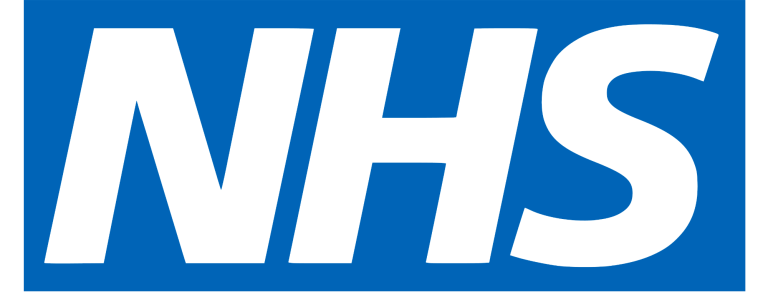How I Use Data for Health, Care & Social Impact

Welcome to my Portfolio
A curated selection of projects demonstrating how I combine data analytics with real-world strategy to drive meaningful outcomes.
Some of these projects were developed during my formal training in data analytics, where I applied tools such as Python, R, SQL, Excel, and Tableau to solve problems in healthcare, logistics, and customer behaviour analysis.
Others reflect my strategic consulting experience, most notably my work with St George Health Support, where I led on market research, service modelling, and financial projections for a community-focused care initiative.
Together, these projects showcase my ability to translate data into insight, and insight into action, whether through exploratory analysis, predictive modelling, or high-level business strategy.
Data Consulting & Freelancing
Empowering startups and small charities with strategic insights
Provided strategic data consulting during the development of St George Health Support, a care-focused startup exploring services in phlebotomy, patient transport, and home-based health delivery.
My contribution included:
- Leading on the design and delivery of the full business plan
- Conducting detailed market and industry research, service modelling, and competitor analysis
- Producing 12-month financial projections tailored to a local delivery radius
- Supporting operational scoping, including defining service structure and target demographics
This project laid the groundwork for my consultancy at MABEA — blending analytical rigour, strategic planning, and lived experience to support people-centred innovation in health and care.
Academic & Training Projects | 2024
Explore a selection of applied data projects developed during my data analytics training at the London School of Economics (LSE) and through independent study.
These projects reflect my applied experience using Python, R, SQL, Excel, and Tableau to explore real-world challenges across healthcare, logistics, marketing, and customer analytics.
Each piece demonstrates my ability to extract actionable insights, build predictive models, and communicate results through clear, purposeful visualisations.
While my consultancy work focuses on strategic impact and organisational transformation, these projects form the analytical foundation of my approach — combining rigour with relevance to support smarter decision-making.
Healthcare Analytics
Improving patient care with data-driven insights

Showcasing a project that leverage data analytics to improve patient care, optimize healthcare processes, and enhance operational efficiency. These include analyzing appointment trends, improving scheduling systems, and identifying actionable insights to drive better health outcomes.
Business Analytics
Driving strategic decisions for business growth

Highlighting a project that utilize data to optimize business strategies, improve operational KPIs, and support strategic decision-making. These include customer segmentation and performance tracking.
Marketing Analytics
Enhancing customer loyalty with actionable insights

A project showcasing the power of data-driven insights in understanding customer sentiment, optimizing campaigns, and enhancing loyalty programs to drive engagement and growth.
Operational Analytics
Streamlining processes and reducing costs with analytics

Demonstrating the use of data analytics to streamline processes, optimize delivery routes, and reduce costs. The Project includes fleet management and workflow improvements.

Healthcare Analytics
Improving patient care with data-driven insights
This Healthcare Analytics project, undertaken as part of the LSE Data Analytics Career Accelerator, explored NHS appointment trends to uncover insights into missed appointments and scheduling inefficiencies. Using advanced tools like Python and SQL, I analyzed datasets spanning patient demographics, appointment types, and attendance patterns. The analysis revealed critical factors contributing to missed appointments, enabling actionable recommendations to improve scheduling practices and patient engagement.
Key findings included the identification of specific appointment types with higher non-attendance rates and trends across demographic groups. To address these challenges, I developed strategies such as targeted reminders and optimized scheduling windows, which could reduce missed appointments and improve service delivery. This project underscores the impact of data-driven strategies in streamlining healthcare processes and enhancing operational efficiency.
Business Analytics
Driving strategic decisions for business growth
As part of the LSE Data Analytics Career Accelerator, I conducted a comprehensive market analysis for 2Market, a fictional global supermarket chain, to uncover insights into customer demographics, purchasing behaviors, product popularity, and marketing channel effectiveness using data from 2012 to 2014.
Key findings included the identification of alcoholic beverages as the top product category and Twitter and Instagram as the most impactful marketing channels. Using tools like Excel and Tableau, I performed data cleaning, exploratory analysis, and visualization, providing actionable recommendations to optimize marketing strategies, product offerings, and customer engagement.
This project highlighted the importance of leveraging data quality and effective visualization to drive business decisions and enhance sales performance.


Marketing Analytics
Enhancing customer loyalty with actionable insights
As part of the LSE Data Analytics Career Accelerator, I conducted a marketing analysis for Turtle Games, a fictional global gaming company, to enhance its loyalty program and marketing strategies.
Using Python, I cleansed and analyzed customer data to identify key trends in spending and loyalty behaviors. Predictive models, including decision trees and regression analysis, revealed income and spending as significant predictors of loyalty points, achieving a 94% R-squared accuracy. Sentiment analysis using VADER and TextBlob provided actionable insights from customer reviews, informing targeted campaigns and product refinements.
This project showcased my ability to transform raw data into strategic recommendations, optimizing customer engagement and marketing ROI.
Operational Analytics
Streamlining processes and reducing costs with analytics
As part of the LSE Data Analytics Career Accelerator, I collaborated with a team of students for a real employer based project. Due to the confidential nature of the project, the name of the employer has been changed to Altura Logistics. I took a leadership role on the coding element of the project and integrated all results from other workstreams. The main purpose of the project was to optimize fleet operations and reduce delivery costs. Utilizing Python and statistical modeling, we identified inefficiencies in delivery routes, achieving a projected 10% cost reduction. Our team developed a framework to evaluate in-house versus outsourced delivery operations, providing data-driven insights for strategic decision-making. Additionally, we created predictive models to simulate various operational scenarios, supporting strategic planning and future-proofing logistics operations. This project demonstrates my ability to transform raw data into impactful strategies, ensuring operational success while maintaining confidentiality.

Testimonials and Recommendations

Capstone Project Feedback (London School of Economics):
- "Fantastic coding skills, produced a lot of useful code in tight timeframes."
- "A fast learner—went beyond what was taught in the course to deliver exceptional results."
- "Loved that you took a leadership role in all parts of the project and contributed 200%."
- "Great job combining technical understanding with business acumen. Your solutions showed a deep understanding of the client’s needs."
Champion Award for Caring Nomination (Hounslow and Richmond Community Healthcare):
- “Beata recognised that it was difficult for special school staff to identify the correct named medication for a child in an emergency. Beata has gone out of her way to create an emergency school pack for school trips. Thereby ensuring childrern with complex health needs can fully participate in all school activities safely” Julie Rushton - HRCH Service Manager
Presentation on Role Transition (London Southbank University)
- "Your session was highly appreciated by students, offering real-world insights into being a registered children’s nurse. Thank you for contributing to their learning."
Liz Crighton, Senior Lecturer, London Southbank University
Advanced Data Analytics Skills
Extensive Healthcare Experience
Proven Problem-Solving Abilities
We need your consent to load the translations
We use a third-party service to translate the website content that may collect data about your activity. Please review the details in the privacy policy and accept the service to view the translations.


